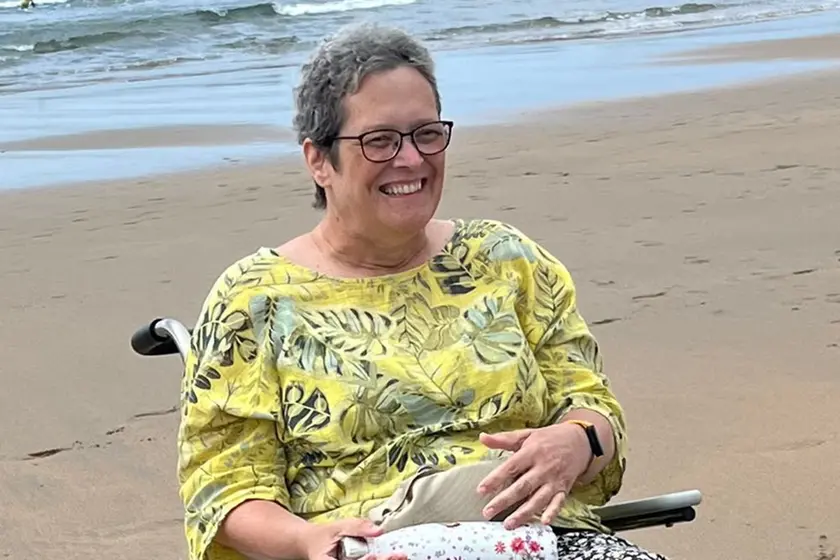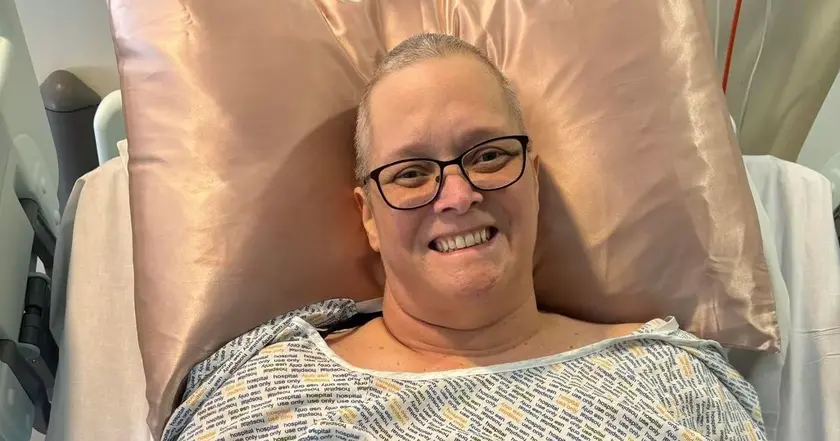T4K3.news
Menopause misdiagnosis leaves woman unable to walk
Karen Davey, 54, of Cornwall, was misdiagnosed with menopause in early 2024 before a spinal cancer diagnosis left her unable to walk. She is now in remission after treatment but relies on a wheelchair.

A Cornwall woman misdiagnosed with menopause later learns she had spinal cancer, highlighting gaps in recognizing women's symptoms.
Menopause misdiagnosis leaves woman unable to walk
Karen Davey, 54, of Cornwall, began experiencing hot flushes, fatigue and loss of appetite in early 2024, which she assumed were menopause signs. By March 2024 she developed kidney pain and visited a GP, who attributed the back pain to gardening after a brief, 20-minute session. Over the following weeks her condition worsened; she stopped eating, lost weight and developed a fever, and she later lost sensation in her legs and in bladder and bowel function. After a two-week hospital stay, she received the diagnosis of stage four non-Hodgkin lymphoma around the kidneys, with a tumor wrapping around her spinal cord. She underwent radiotherapy and chemotherapy and is now in remission but unable to walk and relying on a wheelchair. Her husband has left work to become a full-time carer.
Spinal Injuries Association says Karen was dismissed by her GP and calls for better awareness and earlier diagnosis, particularly for women. The case shows how gendered assumptions can delay serious medical evaluation and how disability compounds life changes and financial strain.
Key Takeaways
"It’s messed up my social life"
Karen Davey describing impact on social life
"I had no idea that hot flushes would lead to all this"
Karen reflecting on misattribution
"Karen's story is a powerful reminder that women's health symptoms should never be dismissed or explained away without proper investigation"
Campaigner quote on awareness
"Too often, women with spinal cord injuries face delays in diagnosis and unnecessary barriers to equitable care"
Dharshana Sridhar of Spinal Injuries Association
This case shows how doctors can anchor on familiar female health narratives, mistaking serious neurological symptoms for menopause and minor injuries. Delays in diagnosis allowed a spinal tumor to progress, with lasting consequences for mobility and independence. The emotional and financial toll is heavy, with a husband becoming a caregiver and reduced work capacity.
Advocates urge systemic changes, including more training on women's health signals and faster access to imaging and specialty care. The story also raises questions about equity in healthcare and how to ensure voices of patients with disabilities are heard in clinical decisions.
Highlights
- It’s messed up my social life
- I had no idea that hot flushes would lead to all this
- Karen's story is a powerful reminder that women's health symptoms should never be dismissed or explained away without proper investigation
- Too often, women with spinal cord injuries face delays in diagnosis and unnecessary barriers to equitable care
Health care delays in women's diagnosis
The case shows how gendered assumptions about menopause can delay serious diagnoses, leading to life-changing outcomes. It highlights the need for better awareness and timely investigations in women's health.
Health systems must listen before the damage is done.
Enjoyed this? Let your friends know!
Related News

Menopause misdiagnosis reveals life changing cancer

Mother loses half her body weight after severe health struggles

Mother suffers burst appendix after taking weight loss drug

Weight loss breakthrough after lymphedema lipedema diagnosis

Raising awareness of heart valve disease in women

Mother fights to save her daughter from mental illness

Jenni Murray shares emotional journey after serious accident

Woman discovers brain tumour after years of anxiety symptoms
